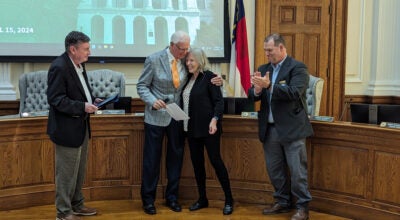Catawba increases minimum wage to $15 for non-student staff members
Published 5:32 pm Tuesday, March 1, 2022
SALISBURY – Catawba College has increased its hourly pay for non-student staff to $15 per-hour, effective Tuesday.
The increase follows an earlier increase to $13 in October. Before that, some entry level employees were making the federal minimum of $7.25 per-hour.
“The move to $15 an hour minimum wage is the right thing to do,” Vice President for Business and Finance Lauren Cox said. “Our employees are the backbone of our operations and make so many vital contributions to our college. This has been especially evident throughout the COVID-19 pandemic.”
Catawba Marketing and Communications Director Jodi Bailey said entry-level student positions generally pay minimum wage, though there are some student positions that pay more. She said some student workers may be awarded financial aid through a work-study program.
Bailey said scholarships are not dependent on working on campus.
“We want people to want to work at Catawba College,” Catawba President David Nelson said in a statement. “This step is an acknowledgment of the hard work and dedication exemplified by our employees and our continued commitment to invest in our people.”
The college intends to complete a full compensation study, including salaries, retirement, insurance and other benefits. That includes continuing to look at base, hourly pay.
The increase comes on the heels of three major gifts to the institution in the past year, including a $5 million award from Fred and Alice Stanback last week, an unprecedented $200 million anonymous gift in October and a $13.7 million anonymous gift in June.
The $200 million was directed to the college’s endowment, including a percentage that must be dedicated to environmental programs. The $5 million contribution will be directed to a few areas, including new faculty hires and employee compensation. The $13.7 million gift paid off most of the college’s outstanding debt.
Bailey said she could not answer specifically if the contributions made paying for the wage increases possible, but the administration wants to make the college’s compensation marketable to the community.
“It’s important to us that they have a living wage that keeps up with the cost of living,” Bailey said.





